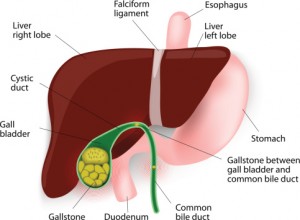Will Losing Weight Help Your Excessive Sweating?
If you are overweight and also suffer from excessive sweating, you might have thought that the two are connected. Whilst being overweight could be a contributing factor to your sweating problem, there might be others as well.
Around 3% of the population are affected by excessive sweating, or hyperhydrosis. If you are affected, you are probably already miserably familiar with the symptoms. The underlying reason for those problems might be less obvious though. The fact is, there are a number of possible causes.
The first thing to understand is that there are two types of hyperhydrosis. The first - primary hyperhydrosis - often begins in childhood or adolescence. One characteristic of this type is that it is 'symmetric' i.e. affects both right and left sides of the body simultaneously. It occurs on very specific areas of the body, most commonly hands, feet, underarms, head or face. Sufferers of primary hyperhydrosis don't usually have episodes of excessive sweating when they are asleep.
If you believe you have this type of hyperhydrosis, the good news is that it is not usually a result of being overweight. However, the bad news is that it is an actual medical condition, usually a result of genetics. If your family has a history of excessive sweating, that could explain your symptoms. But, there is hope! There are treatments available for this type and a good resource is SweatHelp.org.
The other type of hyperhydrosis is secondary hyperhydrosis. This is where there is another issue and excessive sweating is the symptom. To help to identify this type, sufferers usually experience sweating on a larger, more generalised area of the body. They also experience their symptoms during sleep.
In the case of secondary hyperhydrosis, the cause could be another health issue or a side-effect of medication. Causes like hyperthyroidism, stress, and the menopause might be to blame... In fact the list of conditions that have excessive sweating as a side-effect is quite extensive. But this list does include obesity and being overweight.
So how do you know whether your weight is a factor? Well, if you are overweight, the only way to know for sure if your weight is the cause of your excessive sweating symptoms is by losing weight and monitoring the effects. If the sypmptoms reduce, or even stop, when you lose weight - you will have identified the cause of your excessive sweating. Obviously then the challenge becomes to maintain a healthy weight and/or lose more weight. However, at least you have gained the awareness of your condition, which can be half the battle.
Since hyperhydrosis is a recognised medical condition, if you believe you sweat more than is 'normal', it's a good idea to seek advice from your doctor. If you think your symptoms are linked to being overweight, that's a good incentive for starting a healthy eating and exercise plan. You won't see any negative side-effects from a healthy weight-loss program if you are overweight, and you could reduce your excessive sweating problem as well. But even if your weight is not directly responsible for your hyperhydrosis, by becoming fit and well, you will improve your overall health and self-esteem - which may inadvertently relieve your symptoms.
-
Lost Weight From Strength Exercises
When it comes to weightlifting sports, comprehend that there are
-
Lets Be Real: Before & After Photos Are B.S.
-
Weight Loss Its Routine
Losing weight is a battle, a struggle, a pain, right? Thats most peopl
-
Lose Excess Weight Through The Use Of These Excellent Suggestions
The definition of fitness is being phys
-
Health and diet talk, how do we lose weight and how you can make it occur
First thing’s 1st, all those ads you see on TV for crazy diet pi
-
Why Diet Soda May NOT Help You Lose Weight!
How many diet drinks do you consume in a given day? One…Th
- DON'T MISS
- Bodybuilding Weightloss Exercise Tips And Strategies
- Mind Over Matter: How Your Attitude May Affect Your Weight Loss
- A Recipe For Fat Flush Water? We Think Not!
- How To Use Simple Tricks For Lasting Weight Loss
- IBD-related colorectal cancer risk raised by chronic inflammation, immunosuppressive therapy
- What Is Hcg And How It Helps In Weight Loss Miami Program?
- Simple Physical Exercise Tips For Women
- Weight Loss Tips To Shed Those Unwanted Pounds
- 6 Ways to Avoid Overeating
- Weight Loss Begins With Ambition, Determination And These Tips




